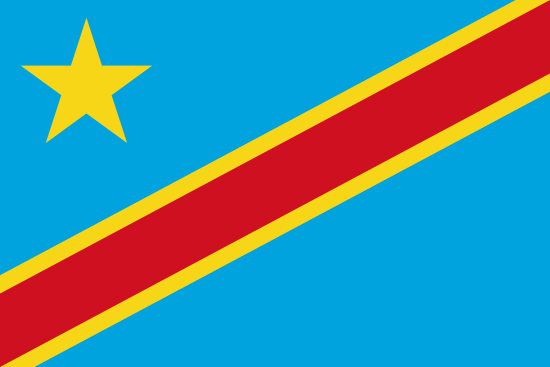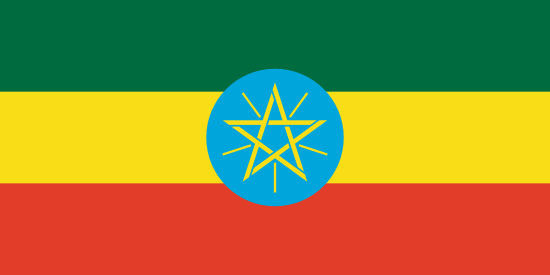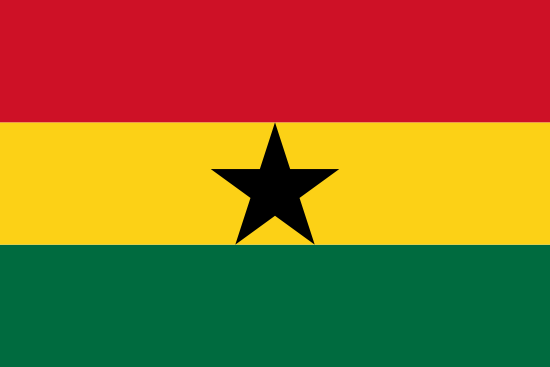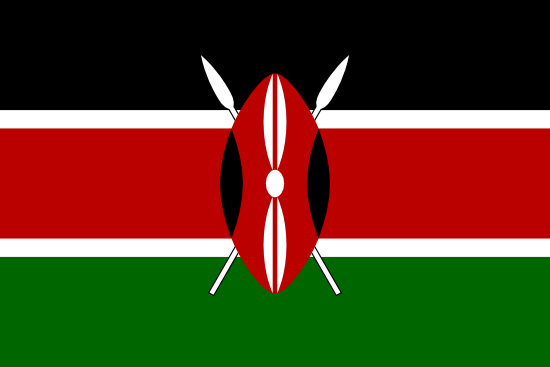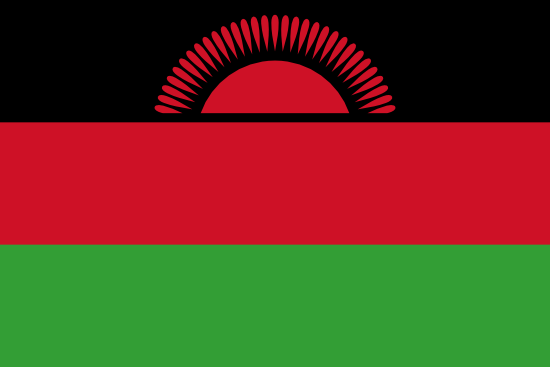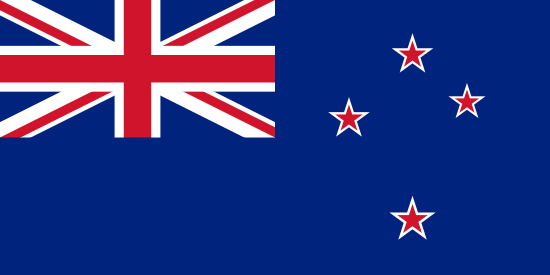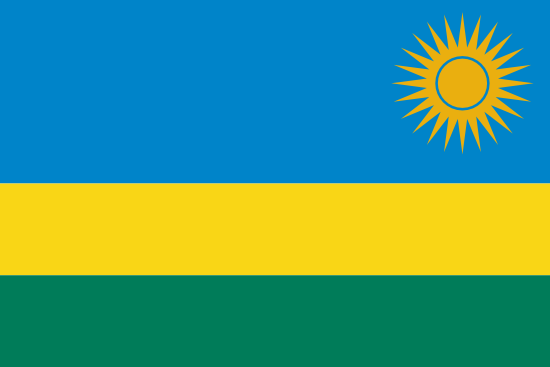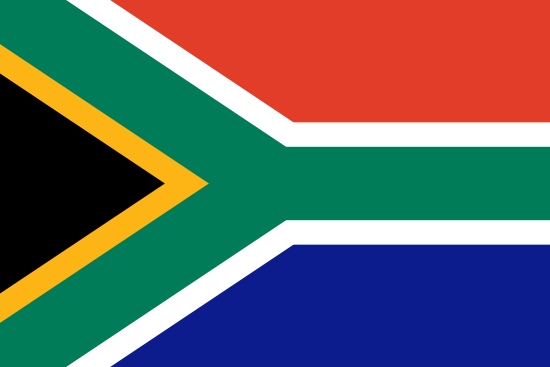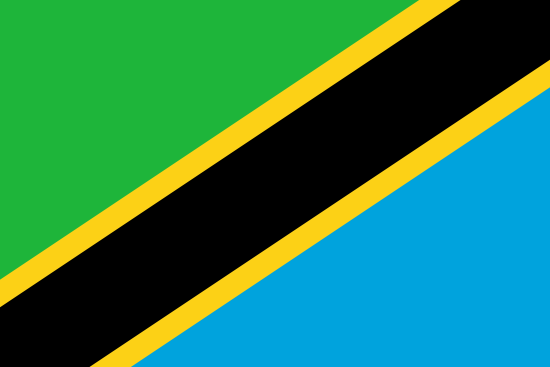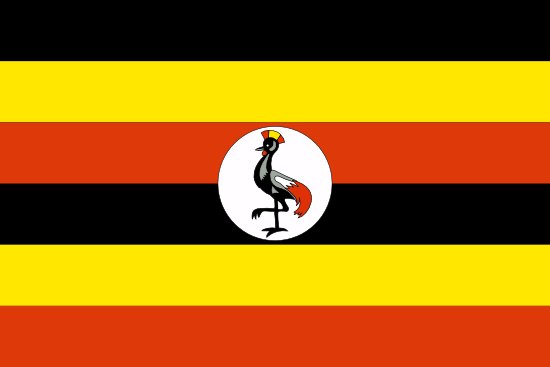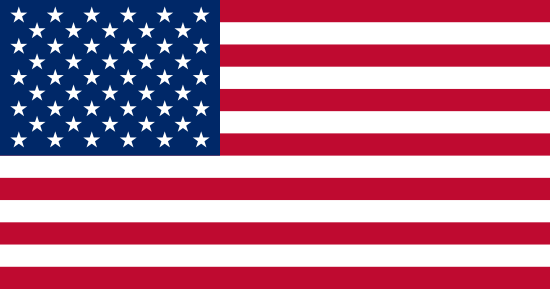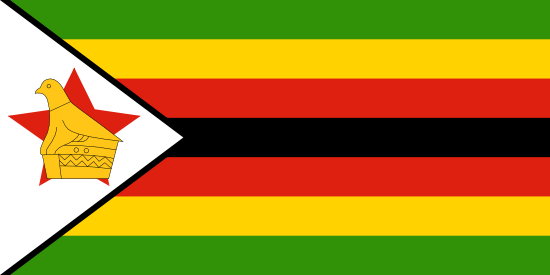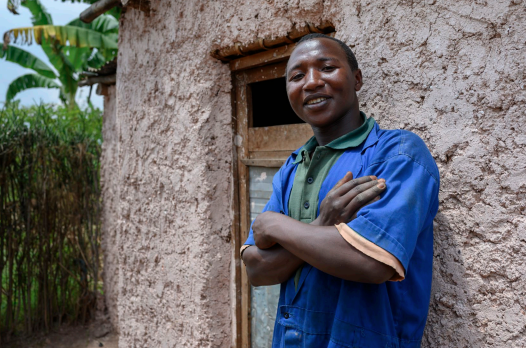Established by AE Rwanda in 2008, the Center for Champions (CFC) offers holistic rehabilitation and development for former street children and youths as well as those from impoverished families. The following article shares the inspiring stories of three CFC graduates, nine years on from their time at the centre.
Claude
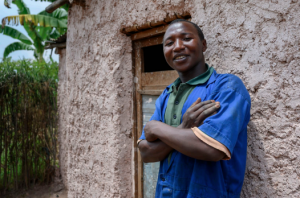
My name is Claude, I am 24. I lived with my grandmother as a child. My parents died in the 1994 genocide. My grandmother used to go out to work and bring food back home. I started working when I was a child. I used to dig for others, take care of cows. I would get some money. As I grew up and got stronger, I could work harder. When I was about 15, I remember some people came to tell us about the Centre for Champions. There was such a large number of people who wanted to join the Centre. I was very hesitant to try and be selected because of the large number. People were selected if you were an orphan, missing both parents, were over 15 and under 30, and could read and write. I had finished primary 6 and could read and write. I was really happy to be selected. I started to have confidence in myself. I thought to myself, if I go there, I will work hard to succeed.
I was at the Centre for Champions for one year. I would go in the morning and come back in the evening. I learned how to measure out a house, how to render a wall and cement a floor. The study was hard because I had to walk a long way to reach the centre. When I left the Centre it was time to eat. I used to come home hungry in the evening, and sometimes when I got home there was no food. But I was willing to study, to become somebody in life, so I did it with courage. I learned my skills from the Centre and am getting more skills from experience. This house, I built it myself. I could not have done that before. Now I earn 3000 [Rwf] a day. When I used to dig for others I would earn 1000 a day.
I am married now and this year we will have our first child. I want to expand our house and buy more land. I can grow food to feed my family and sell at the market. I have a good banana plantation and a cow. We got the cow in 2016. The first calf we give to someone else [this is a part of the cow program], but the next calf we will keep. The manure from the cow is the reason why my banana plantation is so good. I am trying to be multi-skilled. I have learned how to drive a motorcycle and a car. I hope to get a driving license. If I hadn’t gone to the Centre for Champions I think I would be miserable now.
Livine
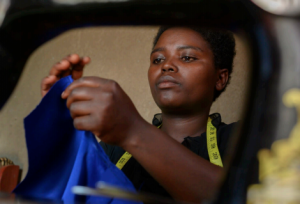
I grew up as a normal child and I studied up to primary 6. I was raised by my mother because my father was in prison. As I child I would help my mother, fetching water and cultivating. I cultivated on our family’s plot and for others. We have only a small plot and it is not enough to feed the family. My mother would get work digging for others and we [Livine and the other children] would go with her to help. I went to the Centre for Champions in 2009 when I was 15. I studied tailoring. I was there for a year. I would go in the morning and come home each day. On my first day I was really excited because if I am going to learn something I will get money and won’t have to dig for others. I will have money for myself.
It was difficult for me there, but because it was something that I valued I worked hard. I used to be really worried when I had to cut material for a client. I was very anxious that I cut in the right way. Now I am fine and I can cut easily. When I left the Centre for Champions they gave us a startup kit. I got a sewing machine and started doing tailoring. My machine in now ten years old, but for me it is still new and I hope to keep using it. But there are things my machine can’t do, like zig-zag stitch. I get 3,000 [Rwf] for doing small jobs [e.g. a woman short top]. If I have to make the buttons, it costs 7,000. It takes about half a day to do something like this and I can do other work around the house. Right now I am making clothes for the choir. There are twenty pieces. 3,000 each.
If I hadn’t gone to the Centre for Champions I would be digging for others, working with my mother digging. Now I am married and we have our own house. My husband works as a bicycle delivery man. We don’t own a bicycle. My husband has to rent one, so he can’t get work all the time. When he can’t get work he digs for others. We have a small plot of land where we grow cassava and beans. We are preparing the cassava roots now. Wit the work that we are doing we want to buy our own bicycle. Then my husband can ride our own bicycle and from the extra money we make we can increase the size of our land and get a cow. For famers, a cow is very important [for the manure].
Daphrose
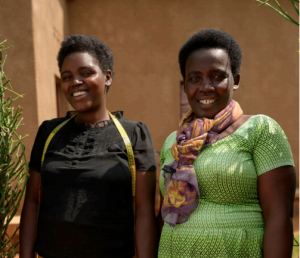
My name is Daphrose. I was the community facilitator who brought Livine to the Centre for Champions. I am part of the AEE self-help groups organisation and one of our responsibilities is to take care of the orphans in the community. I remember Livine as a young girl. When I come here and sit on this chair [in Livine’s house] and see her husband really respecting her, and I remember the orphan she used to be in the past, I really thank god for it. I am proud of being part of her development. Especially when Livine was married I was the one to wear the crown [in Rwanda, the mother of the girl is given a crown. As a sign of respect, Daphrose took the place of Livine’s mother at her wedding.] Tailoring girls always have husbands because they make money.
Please note: Claude’s and Livine’s stories are presented here in the first-person. These stories have been constructed from interviews conducted through an interpreter. As far as possible the words and the voices are their own but to create a sense of narrative flow, changes have been made to the ordering of their statements and to complete sentences.


